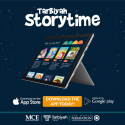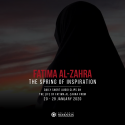We are pleased to announce the return of our #FatimaInspires initiative for the fourth year running. Nominations are open from Feb 20th 2018 to March 9th 2018. Click here to find out more.
December’s Khoja Studies conference certainly made clear that there is a rich history of Khoja heritage that often goes unnoticed. As a community, post the Iranian revolution many Twelver Khojas adopted a much more visible and defined Islamic identity. As a consequence, most of the gatherings that are hosted within the community revolve around an Islamic theme. And this can be credited for a rich and accessible understanding of our Muslim identity and Islamic history.
The community centres aren’t often used as spaces to explore and learn about cultural heritage and histories. My experience of understanding cultural heritage is through cultural indicators such as food, clothing and customs. And further, through narratives and oral history told by generations of family and community friends.
The conference was certainly an eye-opener. An entirely different approach to what I knew of the Khoja world. There are academics from a range of backgrounds that dedicate their lives to studying Khoja heritage and culture – a history that belongs to you and me. And there is so much depth and richness in that history. Concepts, texts, languages, historical events that I for one had never come across.
Examples of difficulties and triumphs that are a worthwhile lesson.
Histories worth celebrating and exploring.
Heritage allows for a greater scope of attachment – with the various indicators that make up cultural heritage, there will always be one that someone can relate to. For example, for me, I enjoy the arts, language and literature aspect of cultural heritage. I also enjoy narrative history, listening and reading stories of living. Connecting via a deeper understanding of texts, art, and narrative, reframes identity and heritage providing a new platform to further learn and be enriched.
That may well be the crux of it. The necessity of spaces for Khojas – young and old alike, to explore, share and celebrate a heritage that was the journey of our forefathers. I expect there is so much to be remembered. And even more to hold dear and celebrate.
[This is the final in a series of reflections by Sister Fatema Zehra Bandali. If you missed part one, you can read this here. To read part two, click here. For more information on the conference please visit http://khojastudies.org]
Related News
Related News
Introducing the Tarbiyah Storytime App! This app allows children from all over the world to have access to our unique MCE Tarbiyah books at the touch of their fingertips. Find out more about this one-of-a-kind app here!
During Ayyam E Fatimiyya, The World Federation are releasing ten audio clips that will take the listener into the world of Fatima al-Zahra as we seek to understand her greatness and the unique mark which she left on the Muslim community. Click here to listen to our daily clips and read our free short book.

















